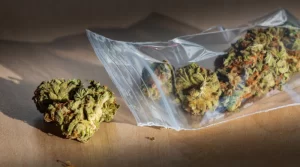
Wisdom teeth, or third molars, are your last set of adult teeth that grow in. They usually erupt between the ages of 17 and 25. Most often, they may require removal to prevent pain, infection, and other oral health problems.
Denver family dentist and the team are highly skilled and expert in the extractions of wisdom teeth, with utmost care. The team ensures accurate results with good patient satisfaction.
What is a wisdom tooth extraction?
Wisdom tooth extraction, also known as wisdom tooth removal, is a common surgical procedure in dentistry. Extraction may be recommended to preserve your oral health and protect your other teeth from possible issues in the future.
Why is wisdom teeth removal recommended?
Dentists may recommend wisdom teeth extraction for the following reasons:
- One or more impacted (partially or fully trapped in your gums or alveolar bone) wisdom teeth
- Crooked wisdom teeth
- Wisdom teeth growing sideways
- Severe pain near the back of your mouth
- Trapped food and debris around the wisdom teeth increase the risk of plaque and bacterial accumulation
- Gum disease around the third molars
- Dental decay or caries in a partially erupted wisdom tooth
- The presence of a cyst (fluid-filled pouch) around the molar
What happens during a wisdom tooth extraction?
On the day of the procedure, your dental surgeon will:
- Administer local anesthetic to numb your teeth and gums to ease pain and discomfort
- Make incisions (cuts), if necessary, to expose the trapped tooth
- Carefully loosen the tooth and lift it from the socket (tooth sectioning may be required for easy removal)
- Irritate the extraction site to ensure there is no residue or debris
- Suture the extraction site to close it
- Place a sterile gauze over the socket to slow the bleeding
What are the necessary precautions to be taken after a wisdom tooth extraction?
Your surgeon will give you postoperative guidelines specific to your situation. These include:
- Leave gauze in place for about 30 minutes after the extraction
- Rest as much as you can
- Use an ice pack to help reduce swelling
- Keep the extraction site clean
- Brush and floss your teeth regularly
- All antibiotics and painkillers as prescribed
- Do not drink through a straw to avoid clot dislodgement and dry socket
- Do not lift heavy things for the initial few days
- Do not eat hard, crunchy, or sticky foods
- Do not drink carbonated drinks
- Do not consume excess alcohol
Bottom line
Wisdom teeth extractions are common and simple unless it is impacted or infected. This becomes crucial, especially if it has a negative impact on your oral health.




